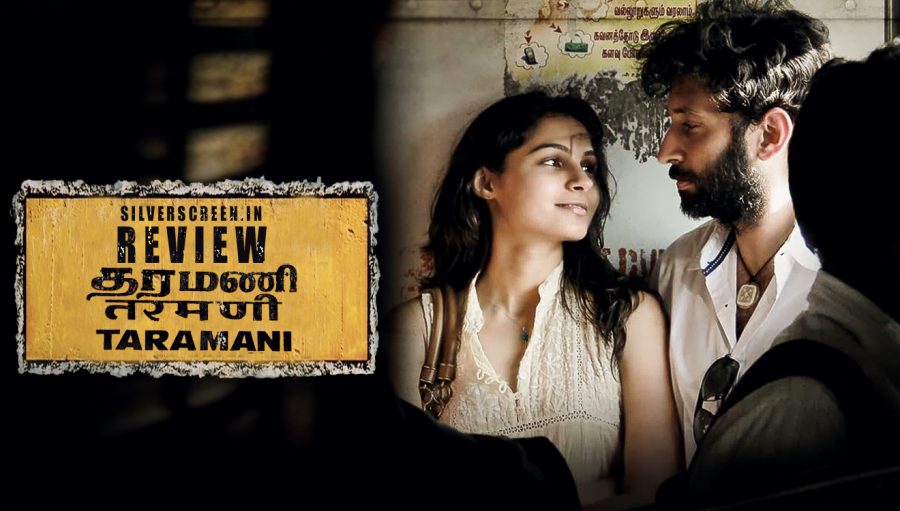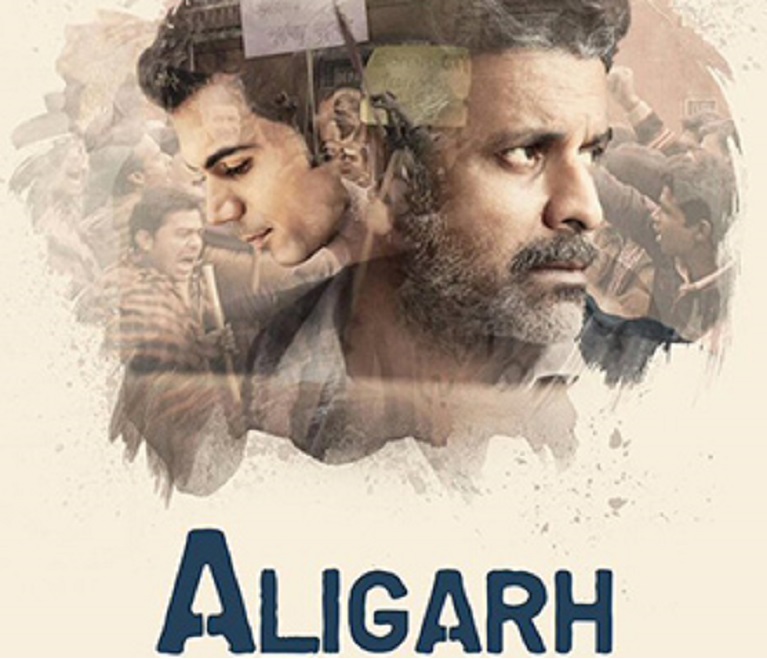An independent woman with a son and a demanding job falls in love with a man she met on the road one day while waiting for the rains to stop. Just the two of the them alone at that bus stand, with no one in sight and the horrible downpour, the woman, naturally, begins to feel a little uneasy.
“Hey, I’m not going to rape you,” says the craggy bearded man, while blatantly staring at her legs.
The rains stop. He offers to help her. She, in return, offers to drop him off somewhere. The premise for a love story is set, even when their next meeting has the man spell out her vital stats in a bid to “figure her out”.
The story of a wastrel and an independent single mother, along with socially relevant themes such as morality, feminism, double-standards, and all that jazz is touched upon in this film with Taramani, the IT hub in south Chennai, as the backdrop.
*****
The posters and teasers looked promising. In fact, director Ram in an interview with Silverscreen even spoke of how he’s realised that women, in his observation, have become more self-reliant.
“Globalisation created a liberal space for women to express themselves. It gave them an identity, beyond the usual tags of mother, sister, wife, and daughter. At least to a great extent. More and more women travel these days, that too with their own money. However, are the men who live with them and work with them able to understand the change? That’s one of the questions Taramani is handling.”
Clearly Taramani didn’t find its answers, especially when the film gives the audience a whiny, entitled wastrel for a male lead who has the story and the narrative sticking to his perspective, where he ends up being dubbed as the victim in what should’ve essentially focused on the story of the independent woman.
If anything, the film is a perfect example of why stories of a single mother, a woman who heads abroad for work and all the other women who’ve had unfaithful husbands and lovers should be told from their perspective. It’s not fair to them nor is it fair to the audience constantly having to deal with mansplaining dialogues with comical background music in tow.
*****
Andrea Jeremiah plays Althea, an Anglo-Indian Chennai woman who is guarded with her no-nonsense attitude and open-mindedness, yet feels the weight of her metaphorical baggage from time to time. But, given how Althea’s character is built, she brushes it off and moves on to better things.
It’s a relief to watch a female lead have no qualms about hitting a few men with her slippers after they pass their usual derogatory comments. But, as the film progresses, it’s mighty troubling to watch the same lead falter and give in to the man with whom she was in a classic toxic relationship with. It’s like as though the makers thought by making her a woman who smokes, drinks, and is okay with pre-marital sex, Althea would be looked at as the prime woman who speaks her mind, even if they choose to drown the dialogues with unnecessary music. It’s half-baked and lazy.
Andrea, that way, is a saving grace in a film that doesn’t deserve her. For once, she looks comfortable on-screen and puts thought into her acting and her character. Evidently, she chose the wrong script but the right character here.
Vasanth Ravi as Prabhu, the male lead and the wastrel referred in the beginning, is someone no one feels sorry for. Even after Prabhu realises the double-standards he had been indulging in and acknowledges his male privilege in the end, he still gets away with a lot. The victim of male privilege and how he tries to set things right – how cute!
While the men among the audience cheered on when Prabhu finally had his happy ending, the women were evidently wondering why someone as headstrong as Althea would still take a man like him back, who not so long ago, slut-shamed and restricted her because as the man he “knows better”.
*****
Perhaps the only riveting character throughout the film is the policeman’s wife who wants to teach her husband a lesson. The police inspector, who indulges in debauchery frequently, catches his wife saying sweet nothings to a man over the phone. She does this to draw her husband’s attention purely because he’s neglected her ever since their daughter passed away. The only way to boil his blood and to give a whack to his virility is by screaming how the other man is way better in bed than him. Despite screaming it out loud, there’s just not enough sense in him to accept that women, too, have needs and it doesn’t make them any different if they do what a man does.
The scene is played out well, almost too violent to watch because of the exchanges they have. But, given that Taramani had established itself as a serious film, director Ram as the asariri (narrator) of the movie adds in some much-needed colour to this disturbing film on men and women. Even when YSR’s music is so misplaced.
*****
Recommended
The movie tries a bit of everything and interweaves too many incidents. There’s a lot to keep up with in this flitting narrative of a man who learns about his privilege. The ending, however, is pretty disappointing, especially when you think Althea finally took a stand only to go back to the cycle of a toxic relationship with a fairly toxic individual.
Also, it wouldn’t hurt to make a movie solely focusing on Althea and the other women, written and told from their perspective. It beats Prabhu’s insipid whining any day.
*****
The Taramani review is a Silverscreen original article. It was not paid for or commissioned by anyone associated with the movie. Silverscreen.in and its writers do not have any commercial relationship with movies that are reviewed on the site.



